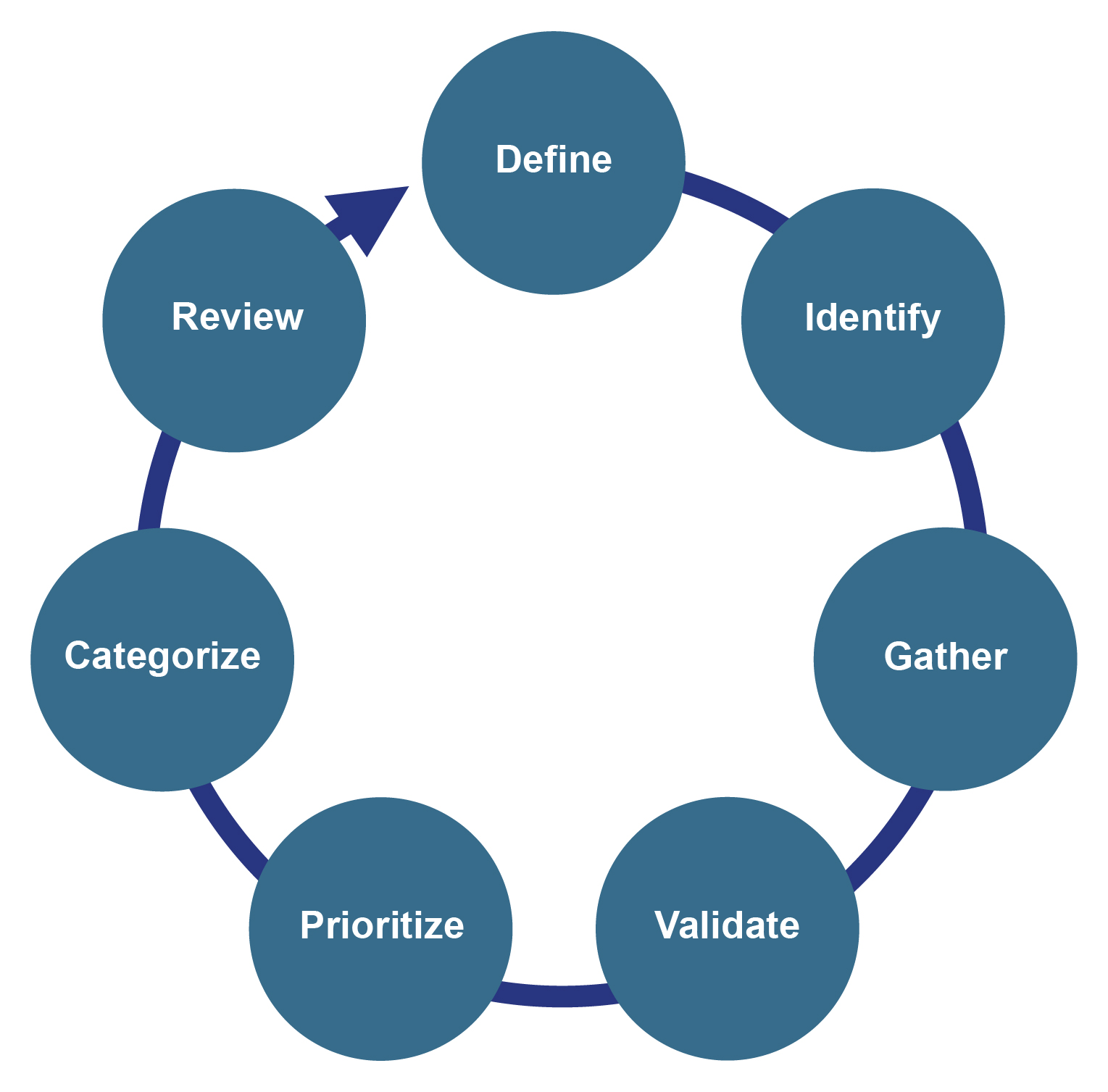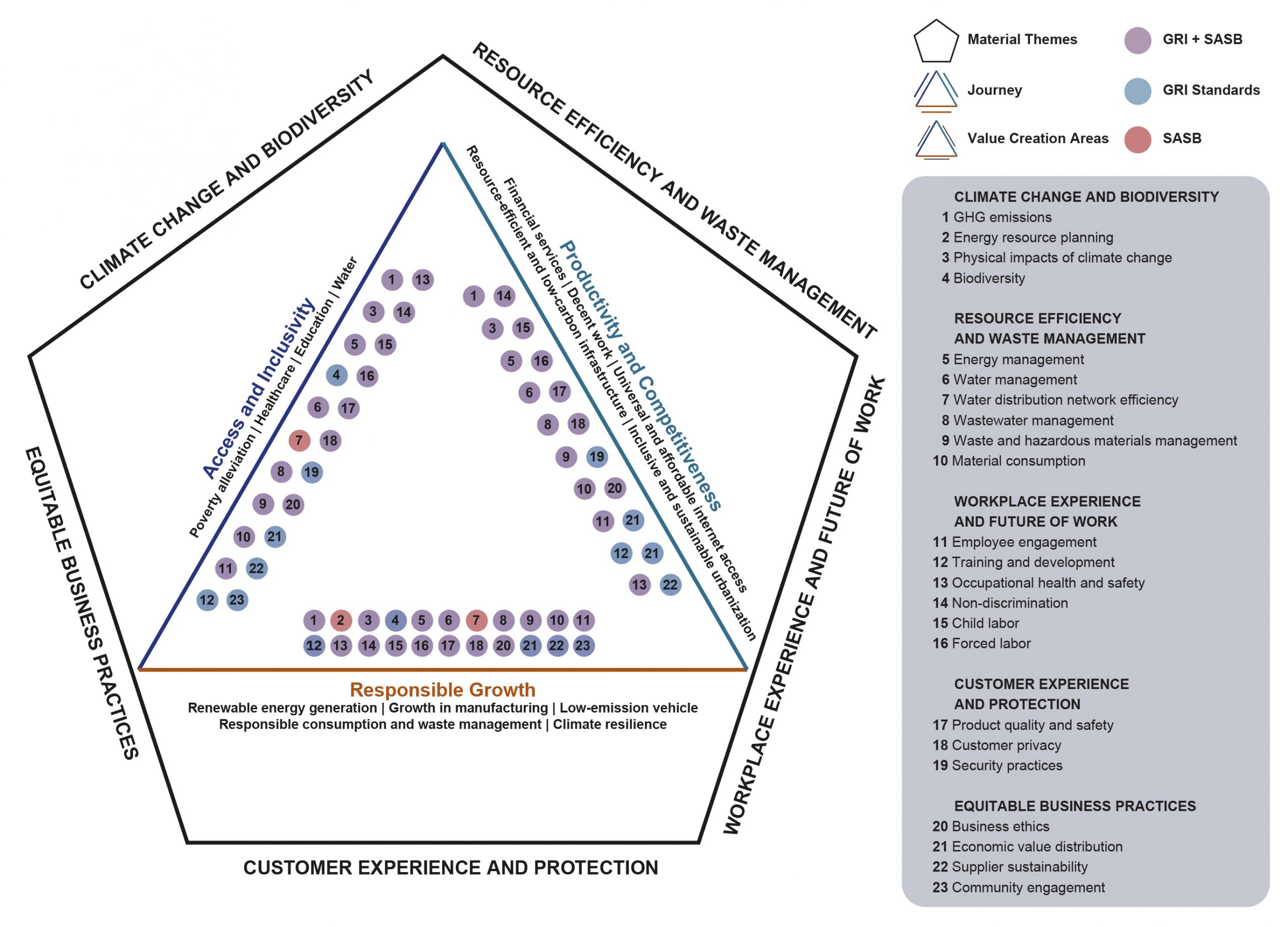Our Materiality Approach:
As a response to the rapidly shifting business and ESG landscape, Ayala reviewed its 360o Sustainability Reporting Framework in the context of emerging trends and urgent issues that affect its stakeholders.
Materiality is one of the content elements of integrated reporting and Ayala continuously strives to keep it up to date to ensure its relevance. These were aligned with GRI Standards, SASB industry-specific topics and disclosures, and the 10 Principles of the UN Global Compact. Our exposure to WBCSD for business transformation helped further integrate our business units’ SDG targets with our sustainability agenda to bridge the societal gaps identified in the three journeys defined in the Ayala Sustainability Blueprint.
OUR MATERIALITY PROCESS

Materiality Process Diagram
Ayala’s material topics are defined by the following three criteria:
(1) it is common among majority of the Ayala companies;
(2) it has a significant impact to the brand and reputation of Ayala Corporation; or
(3) it has a significant importance to key stakeholders of the company.
We identified material topics from the previous ones outlined in the 360o Sustainability Reporting Framework, and from various sources such as media reporting, internal data, peer review by WBCSD and ESG rating institutions, SASB sector-specific regulations and standards, and sector specific regulations. This process also includes research on wider environmental, social, and governance trends and challenges.
Moreover, we gathered information on the impact and importance of each material topic, which allowed us to gain a comprehensive understanding of their relevance to Ayala’s businesses and stakeholders.
Our material topics were then validated by evaluating indicators to be monitored and reported on through thematic workshops with management representatives across the group. Five group-wide workshops were conducted on the following themes: economic, environment, human resources, supply chain, and customer management.
The validated material topics and key indicators were then prioritized based on the strategic importance to the business, to the stakeholders, and the social, environmental, and economic impact in the value chain.
The Results
After a rigid process of identification, gathering information, validation, and prioritization, the material topics were categorized. We analyzed the results, and found that certain topics interconnect, while some had a significant impact on their own. The material topics were clustered according to their significant relevance for Ayala and its business units. The results of the materiality process were presented to and approved by the Board.
The five material themes are as follows:
• Climate change and biodiversity
– Factors that are significant to our commitment to reduce GHG emissions, protect biodiversity in and around areas where our businesses operate, and increase our contribution to climate resilience through climate-related investments
• Resource efficiency and waste management
– Factors to monitor efficient use of natural capital such as energy, water, and other materials necessary for delivery of products and services, and to manage waste
• Workplace experience and future of work
– Concerns that influence the well-being of our employees as well as how our businesses promote human rights principles
• Customer experience and protection
– Factors that push for customer empowerment and protection of their privacy
• Equitable business practices
– Beyond economic value creation and distribution, this theme also includes business ethics, community engagement, and supply chain sustainability, ensuring suppliers adhere to the same standards upheld across the Ayala group.
As best practice, these materiality themes and material topics will be reviewed every two to three years where it is possible to have similar material topics, with an increased or decreased number of indicators.
OUR MATERIALITY PROCESS
The Ayala Sustainability Reporting Framework shown below is the end product of a comprehensive materiality process. It reflects sustainability metrics on which we base our performance, cognizant that creating shared value and becoming a responsible organization goes beyond mere compliance.

It shows the successful integration of the five themes and material topics across SASB, GRI, the three journeys of the Ayala Sustainability Blueprint, and the 10 Principles of Global Compact, while keeping the group’s focal business areas.





